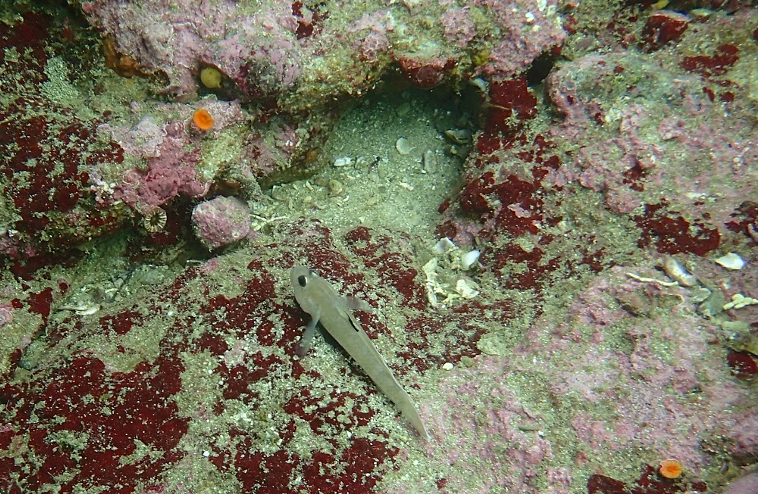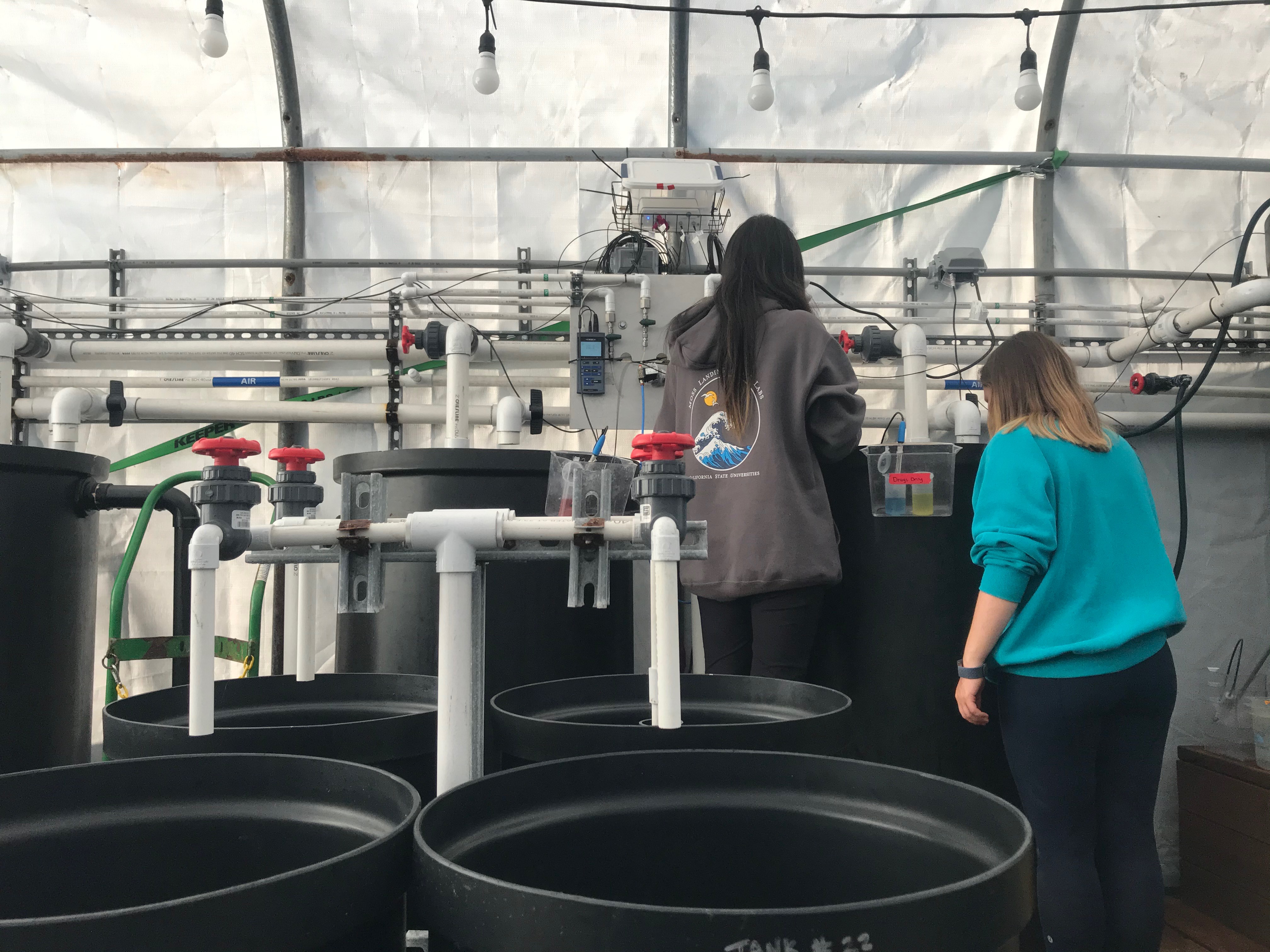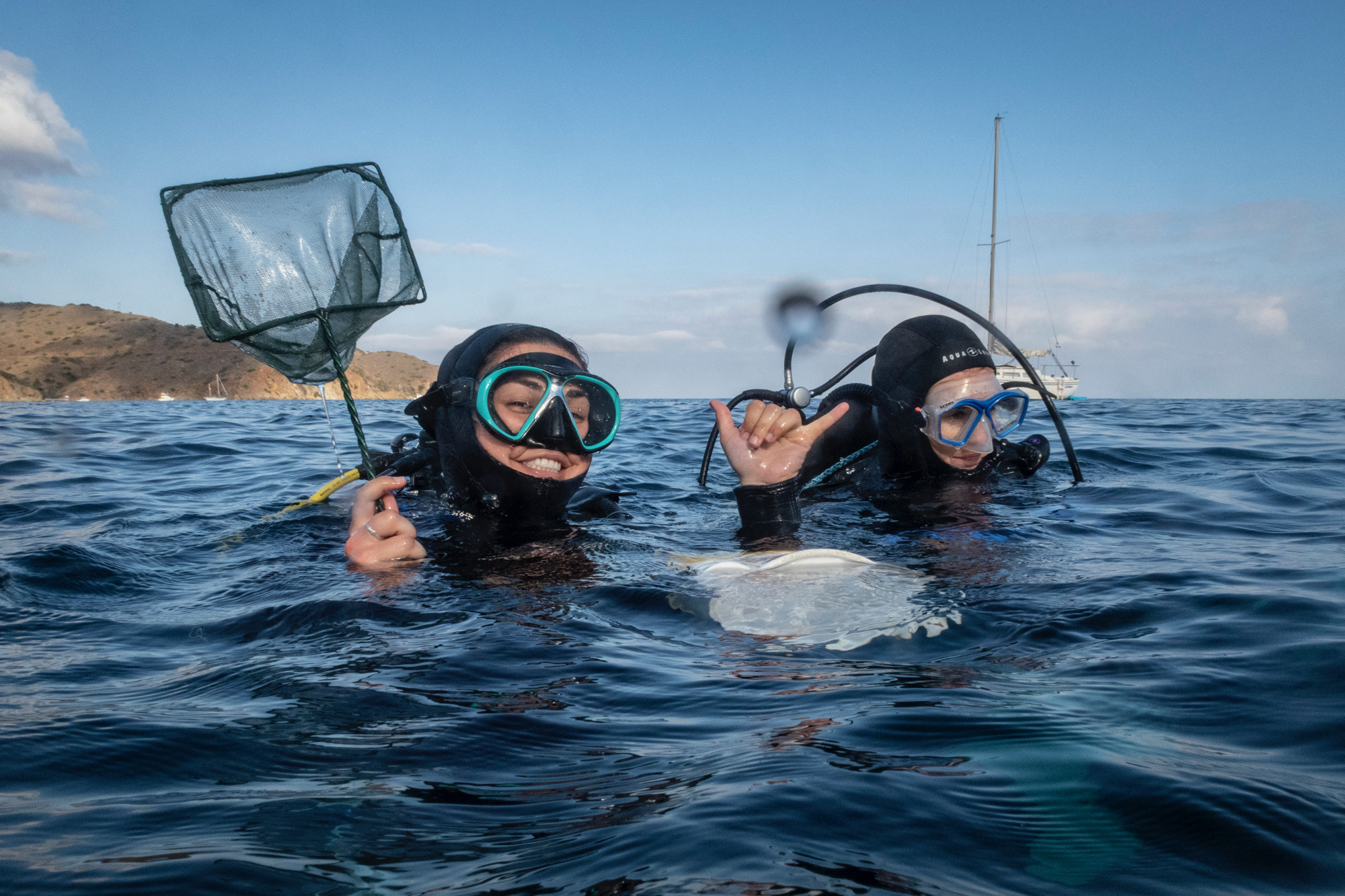By Alora Yarbrough, MLML Ichthyology Lab
What stresses you out? As a 24-year-old graduate student, I use the phrase “I’m stressed” at least once a day. I’m sure most readers can relate. Between classes, thesis deadlines, work, and rent, there are a lot of things that make my cortisol levels rise daily.

My personal stressors inspired me to study how stress affects a common Monterey Bay fish: the blackeye goby (Rhinogobiops nicholsii). I know what you’re thinking… what could possibly stress out a fish? Didn’t Sebastian from The Little Mermaid sing a whole song about how “life under the sea is better than anything they got up there?” Well, it turns out there are a lot of things that cause a fish’s heart to race and cortisol to spike. Anything from predators being nearby to a slight increase in temperature is enough to set off a full stress response.
Cortisol is often referred to as the stress hormone. When an organism is under stress the first thing that happens is a spike in cortisol levels in the blood. When a stressor is introduced, cortisol concentration typically peaks within ten minutes and then will gradually decrease over the course of the next few hours. This increase in cortisol sets off a chain-reaction within the organism’s body that allows them to best cope with the stress.

So, we know that blackeye gobies get stressed out, but what do we not know? That is where my research comes in. I will be looking at how blackeye gobies react to stressors that are directly related to climate change. Since the beginning of the industrial revolution in the 19th century, more and more CO2 has accumulated in our atmosphere as we continue to use combustion as our main energy source (think: driving cars and coal power plants). The ocean plays a large role in regulating the amount of CO2 in the air by absorbing it. While this process may be beneficial to the conditions in the atmosphere, it causes the ocean to become more acidic. This can have detrimental effects on many different ocean animals. On top of the ocean becoming more acidic, low oxygen events in the ocean are increasing in frequency and intensity as climate change progresses. The effects of long-term exposure to low oxygen and acidic conditions is a relatively new area of research for marine fish. All this information leads me to my thesis topic which will examine how low oxygen and acidic conditions affect the cortisol levels in blackeye gobies.
Some preliminary studies have shown that both of hypoxia and ocean acidification elicit a stress response from the gobies, which is good news for my project (arguably bad news for the gobies). Eventually, I will quantify how cortisol is passed from mothers to their offspring and whether or not that has any positive or negative consequences on the offspring’s survival. So, if you happen to stroll into the lab and see a stressed graduate student playing Marvin Gaye to a tank of stressed blackeye gobies to promote reproduction, don’t be alarmed. This project will be in full swing starting at the end of spring and through summer, so stay tuned for what I find!


